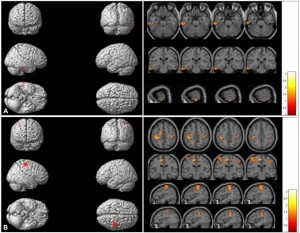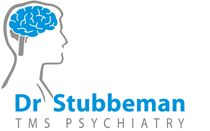
Cortico-Cortical Modulation Induced by 1-Hz Repetitive Transcranial Magnetic Stimulation of the Temporal Cortex
J Clin Neurol | April 9, 2013
Copyright © 2013 Korean Neurological Association
Read The Full Article Here
BACKGROUND AND PURPOSE:
Repetitive transcranial magnetic stimulation (rTMS) has potential as a noninvasive neuromodulation treatment method for various neuropsychiatric disorders, and repeated sessions of rTMS are more likely to enhance the therapeutic efficacy. This study investigated neurophysiologic and spatiodynamic changes induced by repeated 1-Hz rTMS of the temporal cortex using transcranial magnetic stimulation (TMS) indices and fluorodeoxyglucose positron emission tomography (FDG-PET).
 Photo credited from J Clin Neurol, 2013 April 9.
Photo credited from J Clin Neurol, 2013 April 9.Copyright © 2013 Korean Neurological Association
View Source
METHODS:
Twenty-seven healthy subjects underwent daily 1-Hz active or sham rTMS of the right temporal cortex for 5 consecutive days. TMS indices of motor cortical excitability were measured in both hemispheres daily before and after each rTMS session, and 2 weeks after the last stimulation. FDG-PET was performed at baseline and after the 5 days of rTMS sessions.
RESULTS:
All subjects tolerated all of the sessions well, with only three of them (11.1%) reporting mild transient side effects (i.e., headache, tinnitus, or local irritation). One-Hz rTMS decreased motor evoked potential amplitudes and delayed cortical silent periods in the stimulated hemisphere. Statistical parametric mapping of FDG-PET data revealed a focal reduction of glucose metabolism in the stimulated temporal area and an increase in the bilateral precentral, ipsilateral superior and middle frontal, prefrontal and cingulate gyri.
CONCLUSIONS:
Repeated rTMS sessions for 5 consecutive days were tolerated in all subjects, with only occasional minor side effects. Focal 1-Hz rTMS of the temporal cortex induces cortico-cortical modulation with widespread functional changes in brain neural networks via long-range neural connections.
